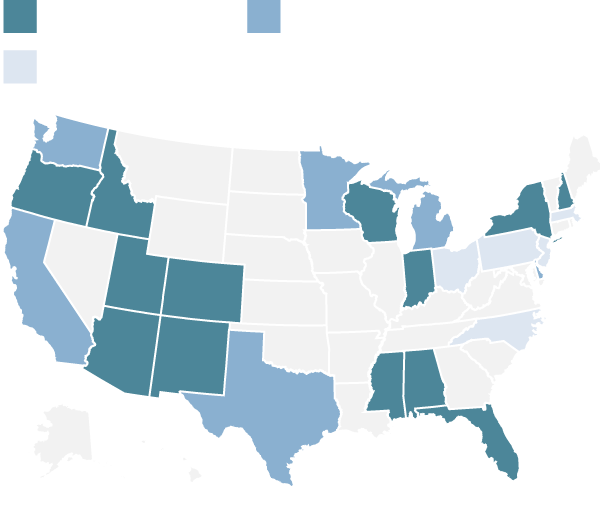
The state joins dozens of others in regulating the A.I. fakery in ways that could impact this year’s presidential race.
California will now require social media companies to moderate the spread of election-related impersonations powered by artificial intelligence, known as “deepfakes,” after Gov. Gavin Newsom, a Democrat, signed three new laws on the subject Tuesday.
The three laws, including a first-of-its kind law that imposes a new requirement on social media platforms, largely deal with banning or labeling the deepfakes.
Only one of the laws will take effect in time to affect the 2024 presidential election, but the trio could offer a road map for regulators across the country who are attempting to slow the spread of the manipulative content powered by artificial intelligence.
The laws are expected to face legal challenges from social media companies or groups focusing on free speech rights.
Deepfakes use A.I. tools to create lifelike images, videos or audio clips resembling actual people. Though the technology has been used to create jokes and artwork, it has also been widely adopted to supercharge scams, create non-consensual pornography and disseminate political misinformation.
Elon Musk, the owner of X, has posted a deepfake to his account this year that would have run afoul of the new laws, experts said. In one video viewed millions of times, Mr. Musk posted fake audio of Vice President Kamala Harris, the Democratic nominee, calling herself the “ultimate diversity hire.”
Election-Related ‘Deepfake’ Laws
Several states have adopted or seem poised to adopt laws regulating “deepfakes” around elections.

Enacted in 2024
Enacted before 2024
Awaiting governor’s signature
WA
ME
MT
ND
MN
VT
OR
NH
SD
MA
ID
WI
NY
WY
MI
RI
CT
IA
PA
NB
NJ
NV
OH
IL
DE
IN
UT
CO
WV
MD
KS
Ca
VA
MO
KY
NC
TN
OK
AR
AZ
SC
NM
GA
MS
AL
TX
LA.
AK
FL
HI

Enacted in 2024
Enacted before 2024
Awaiting governor’s signature
 Print
Print


